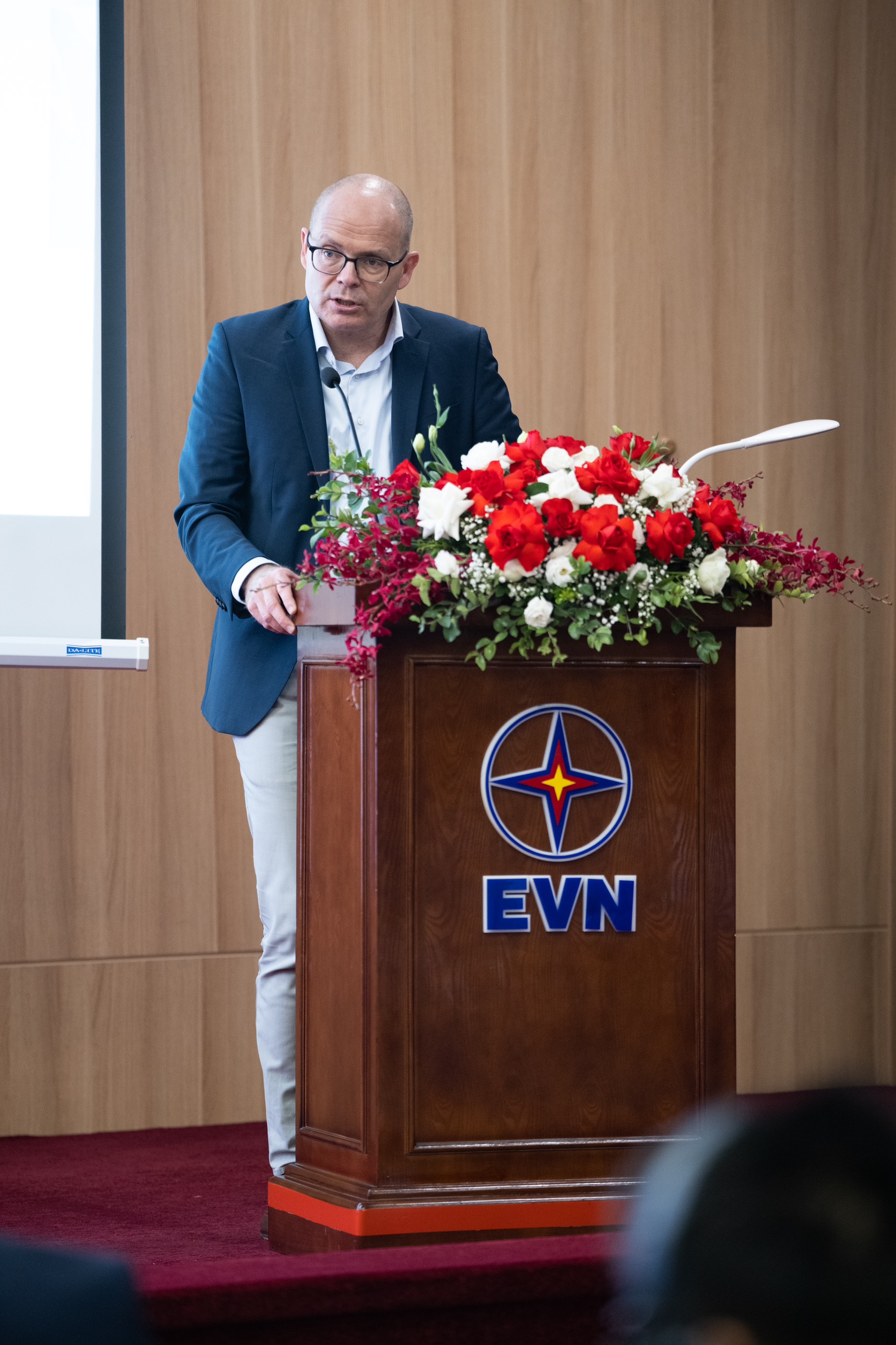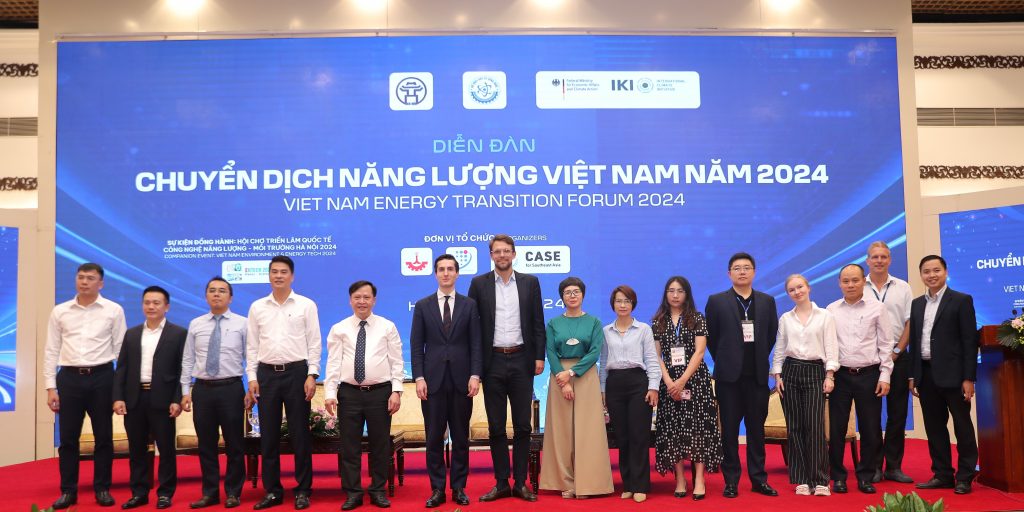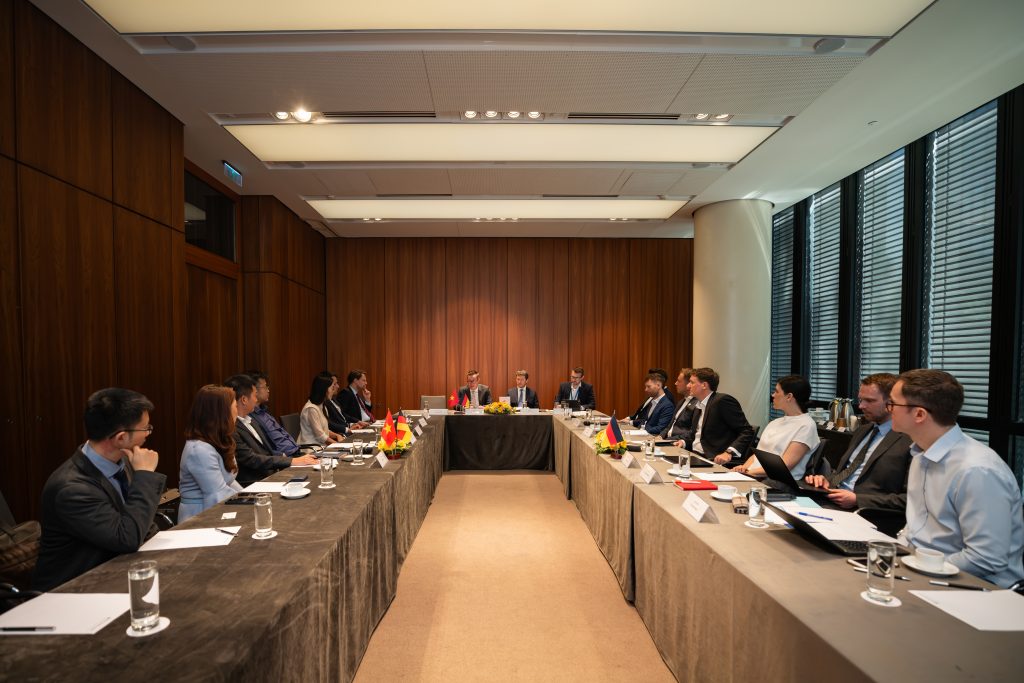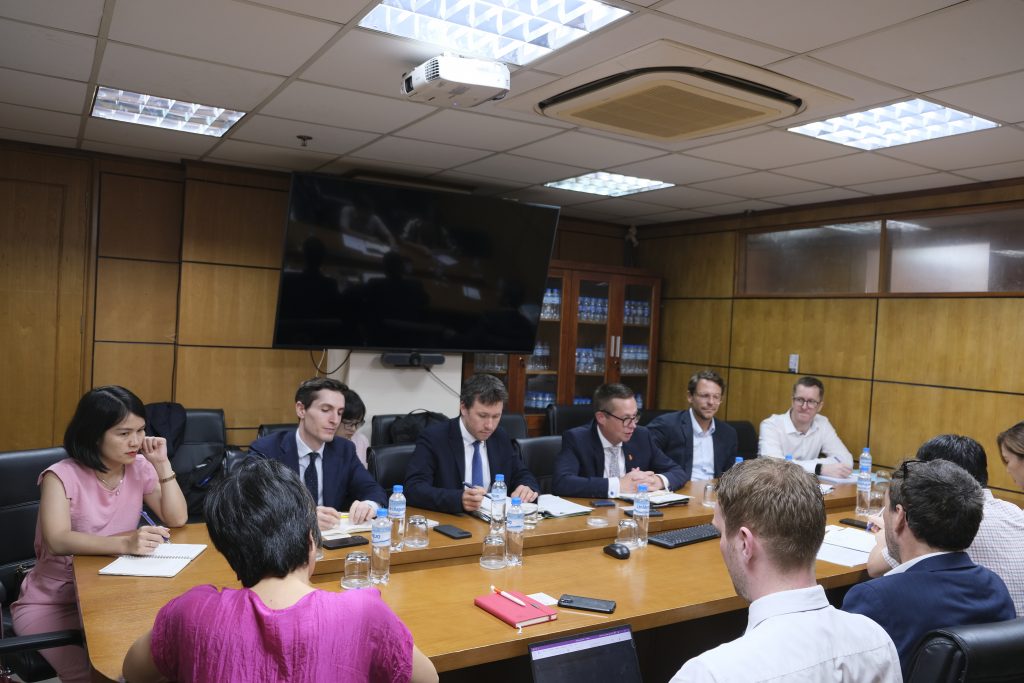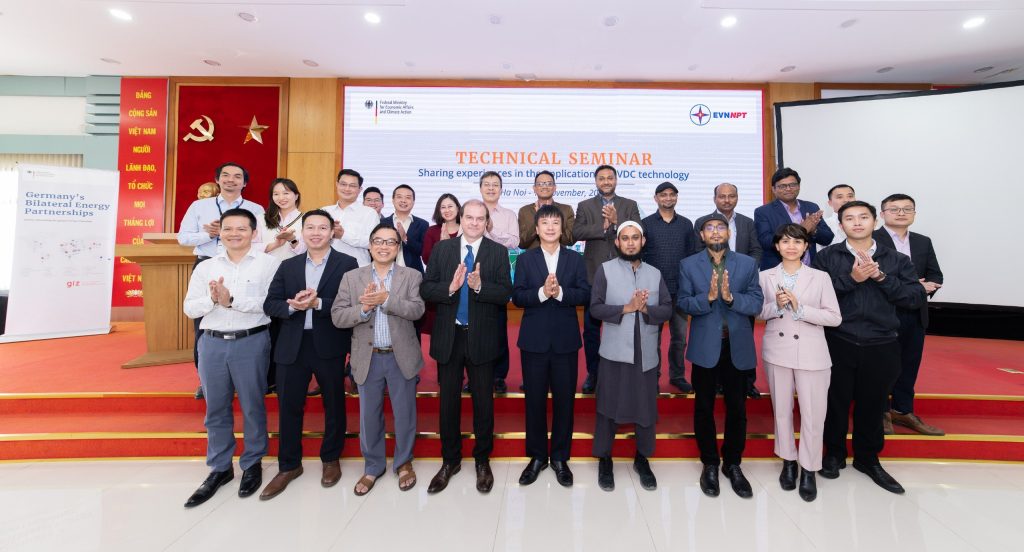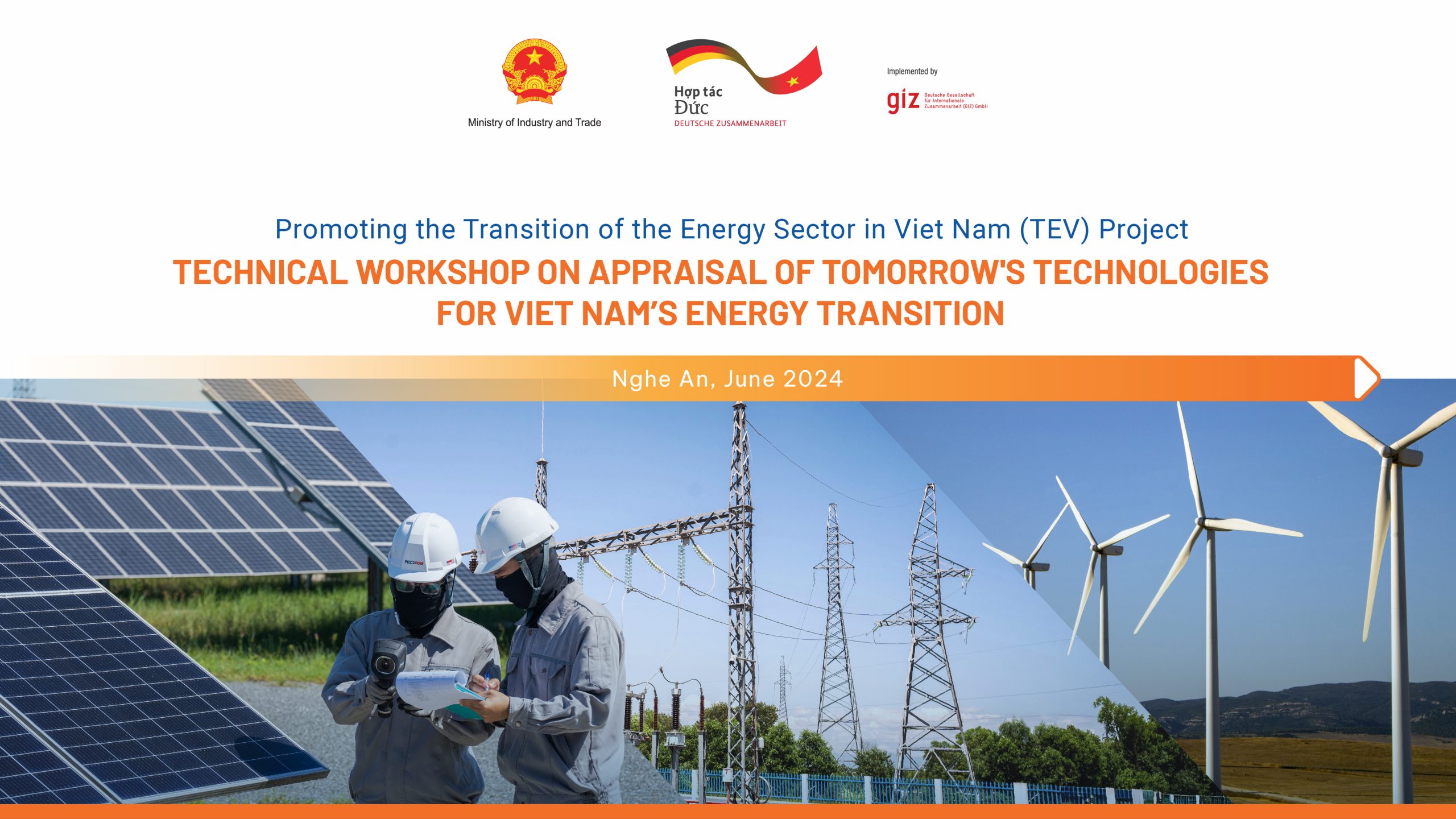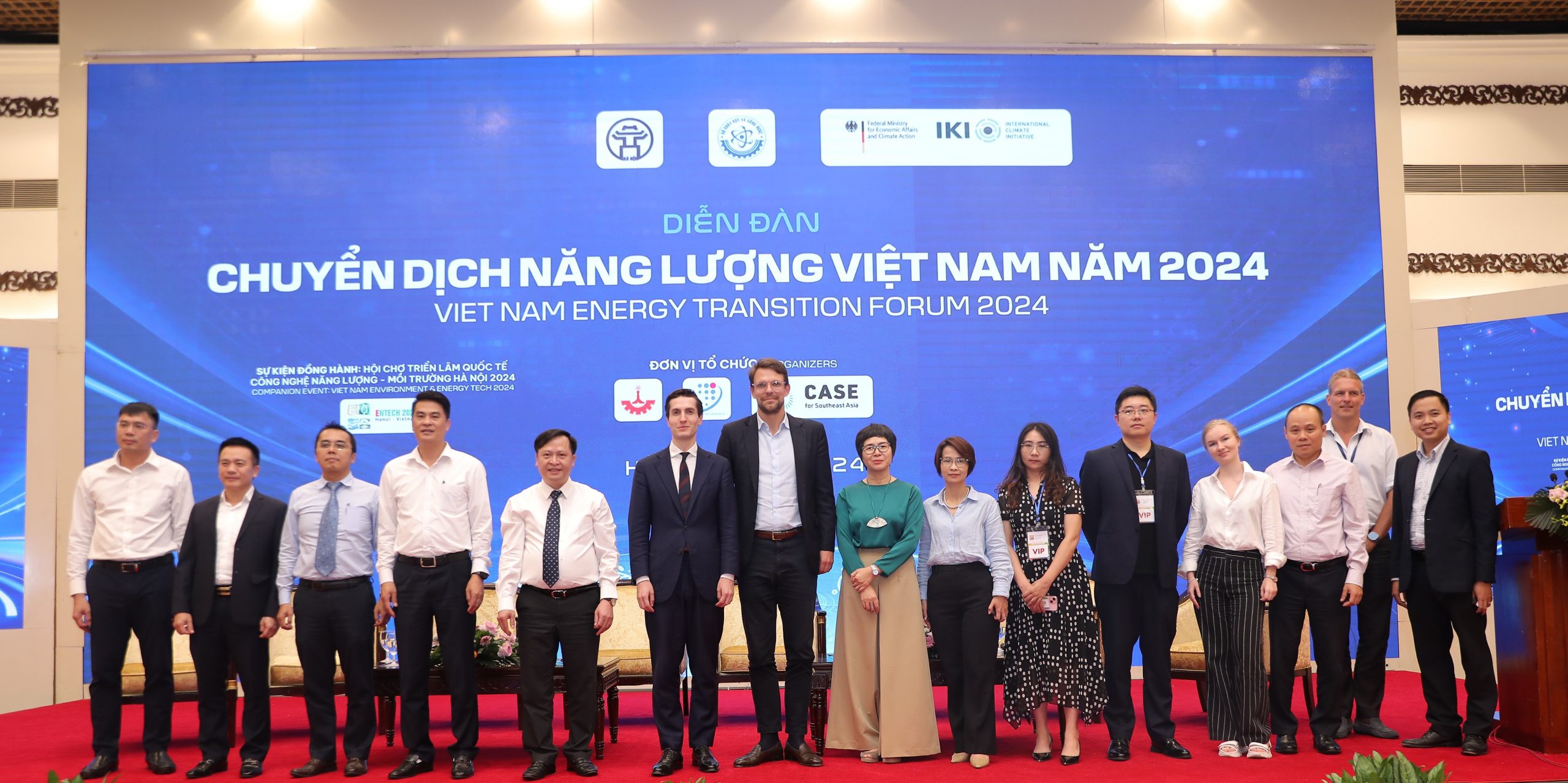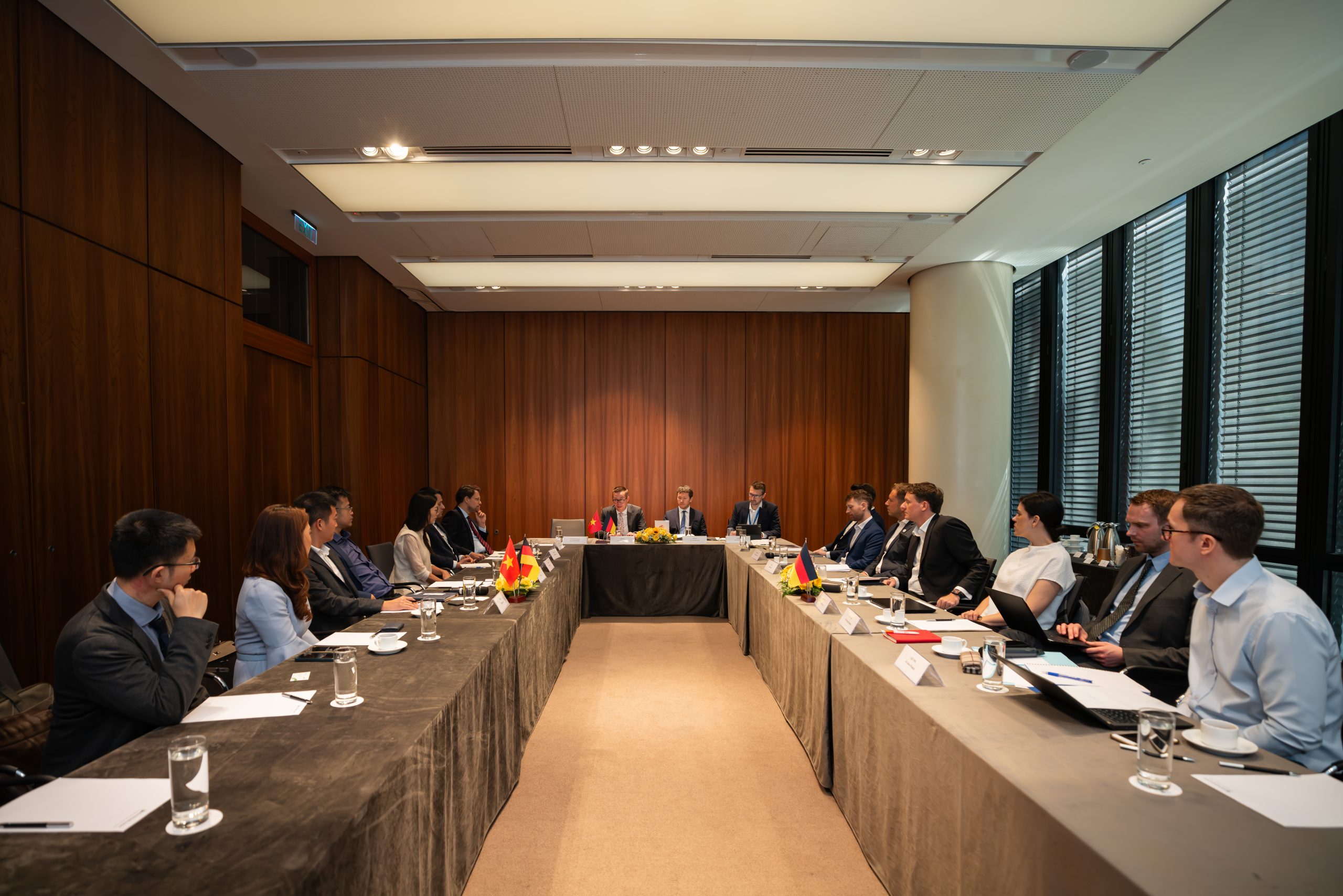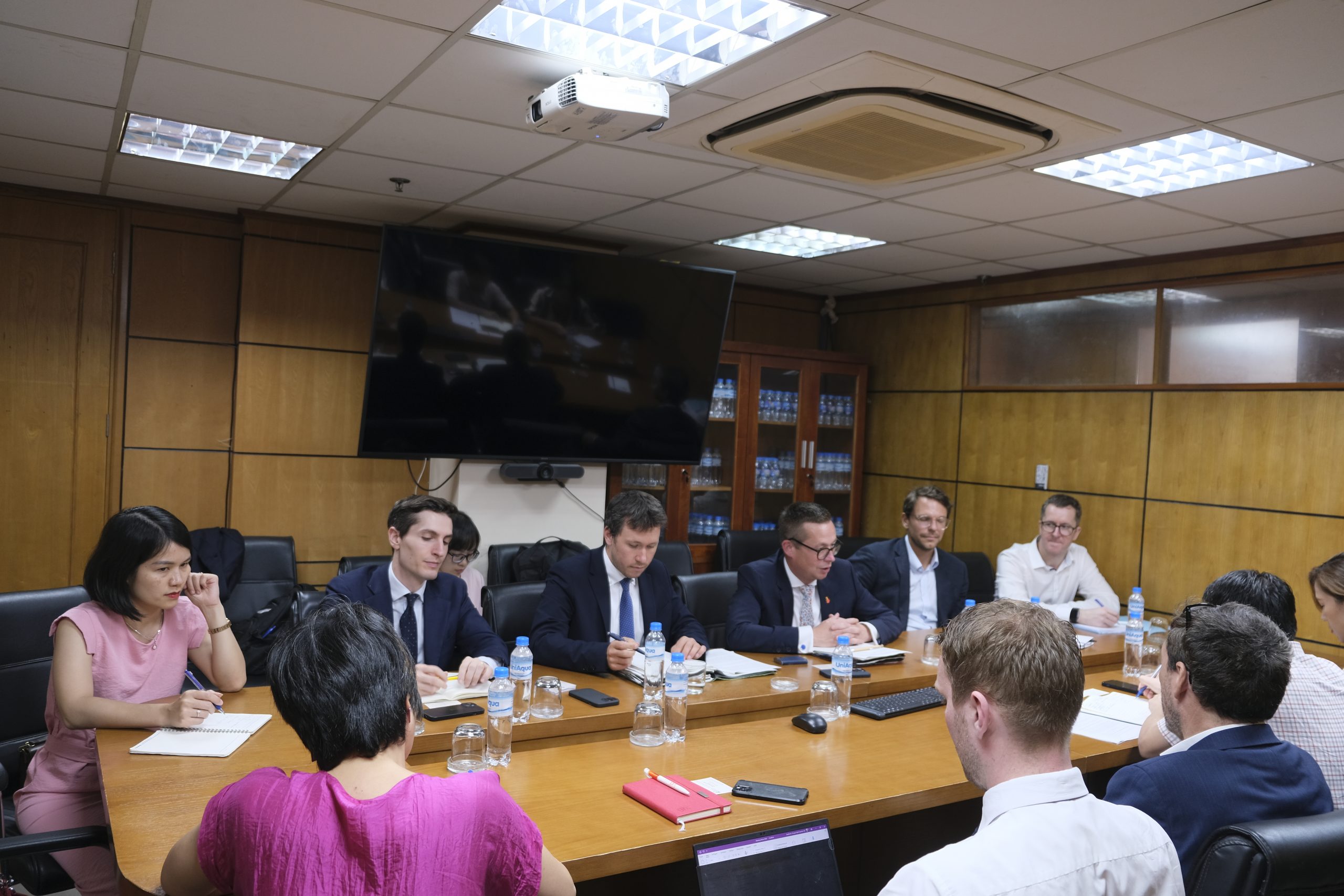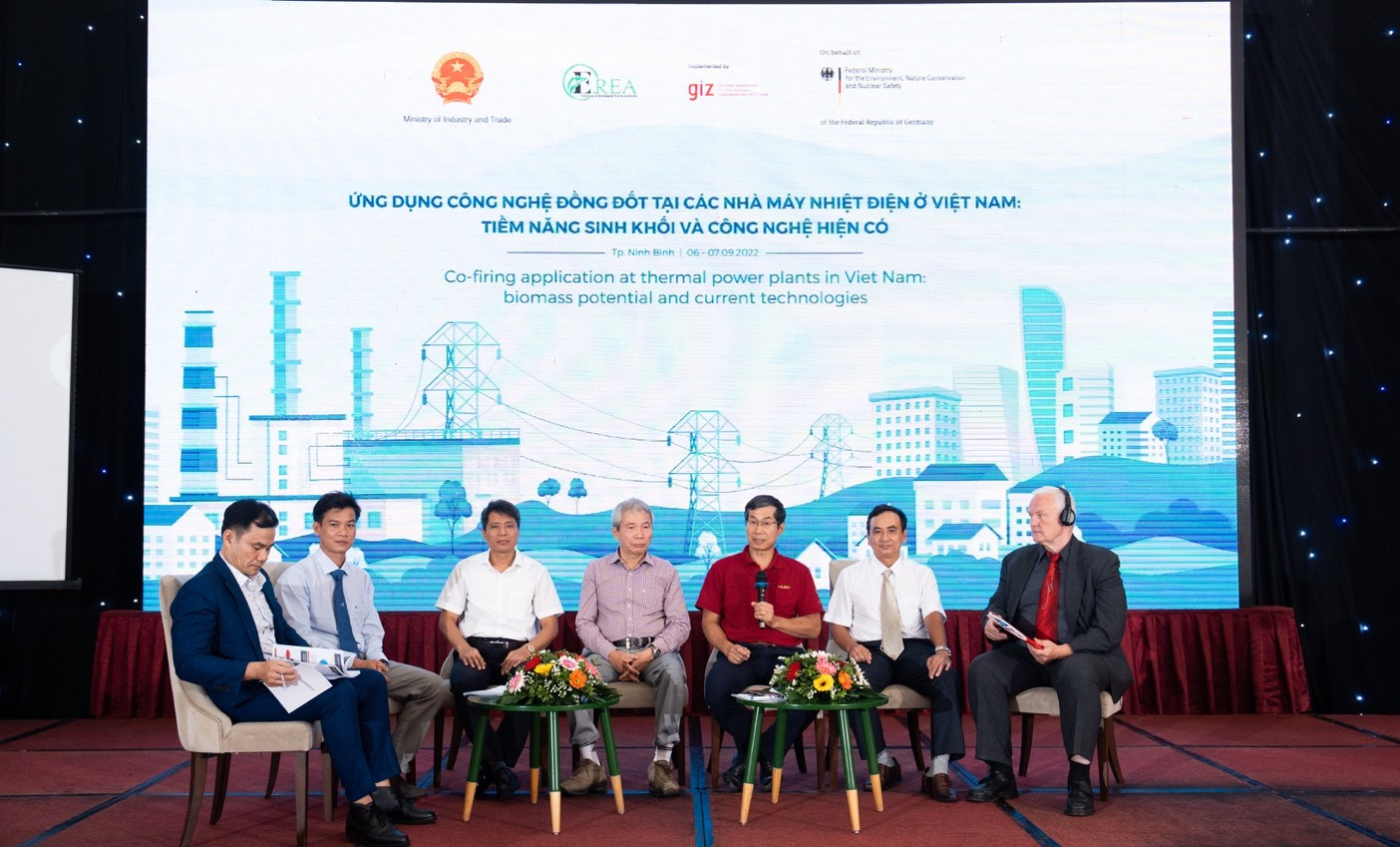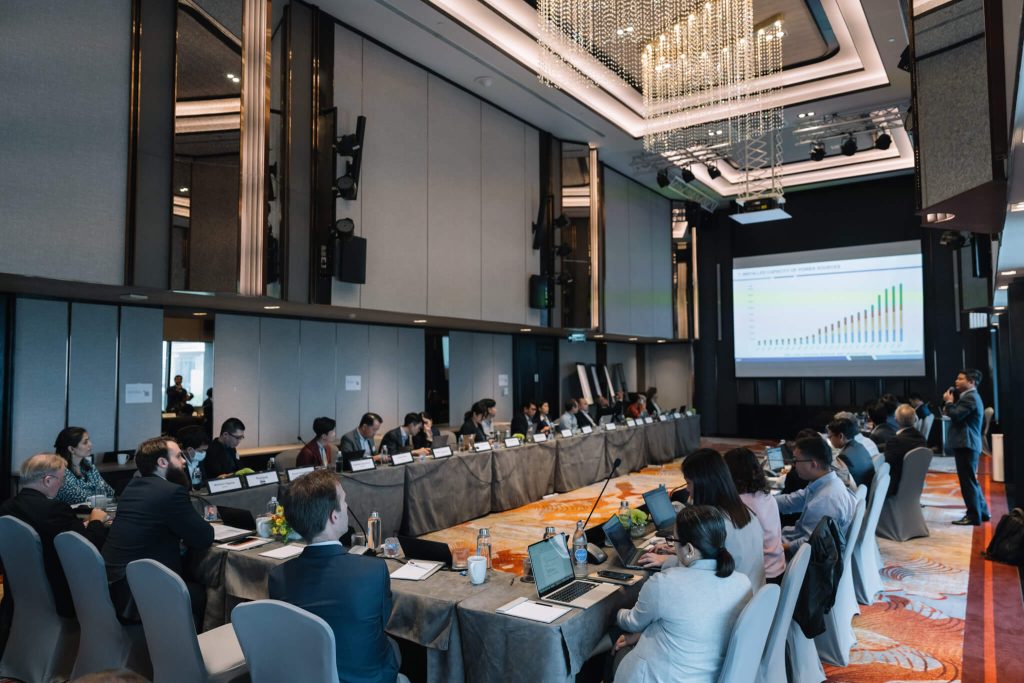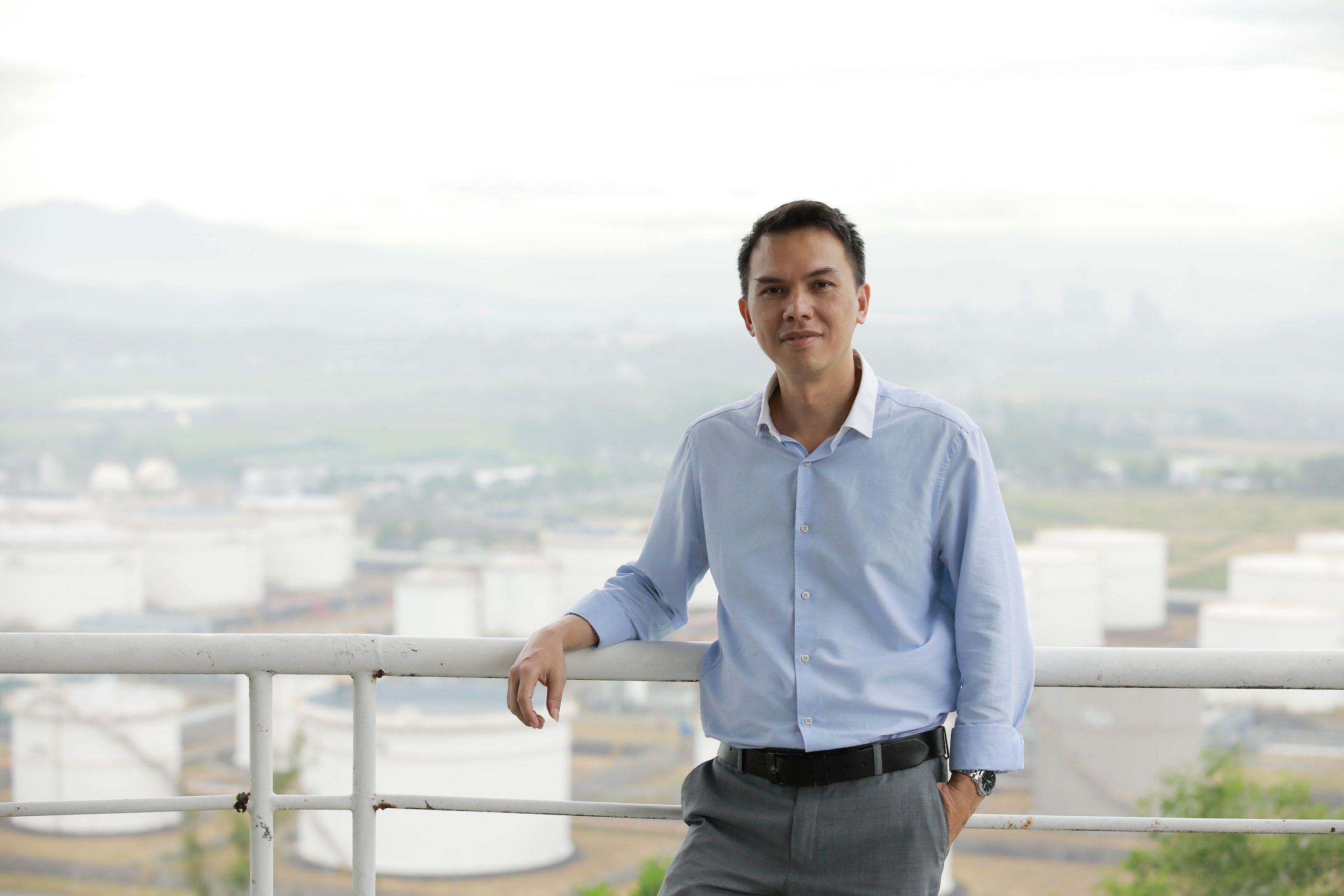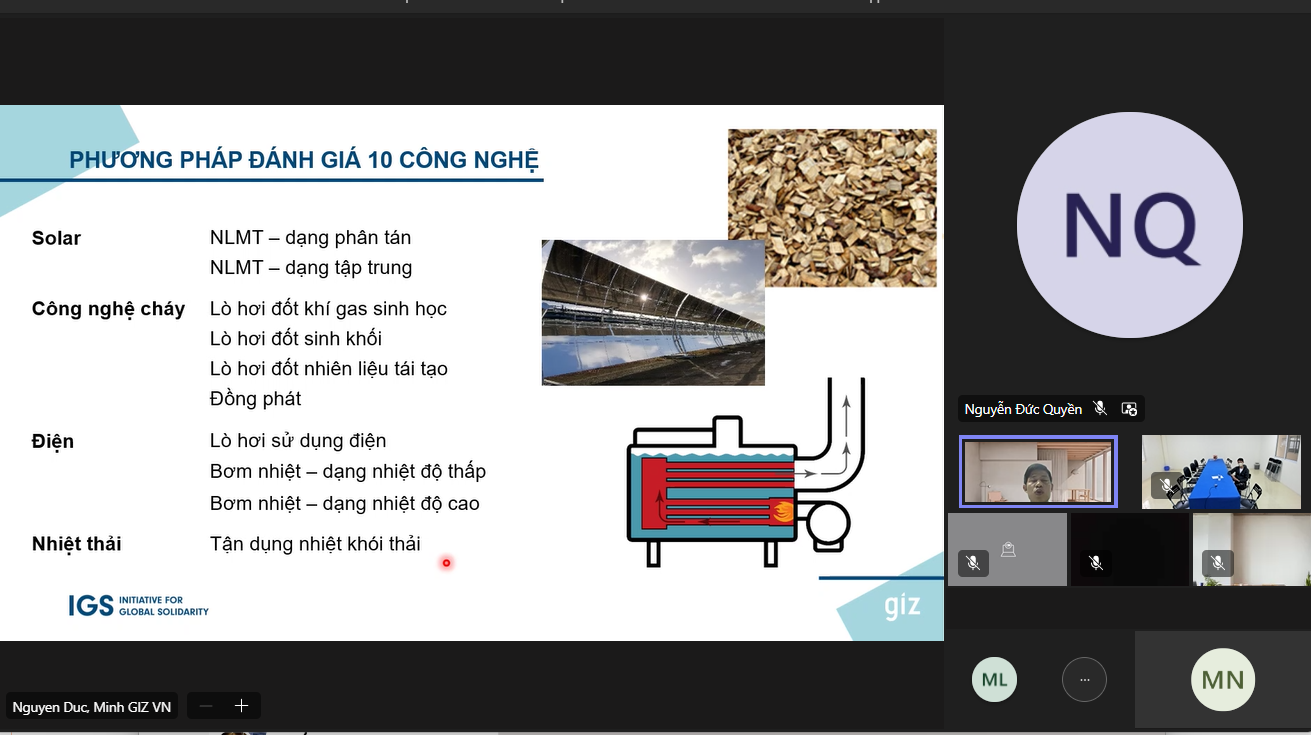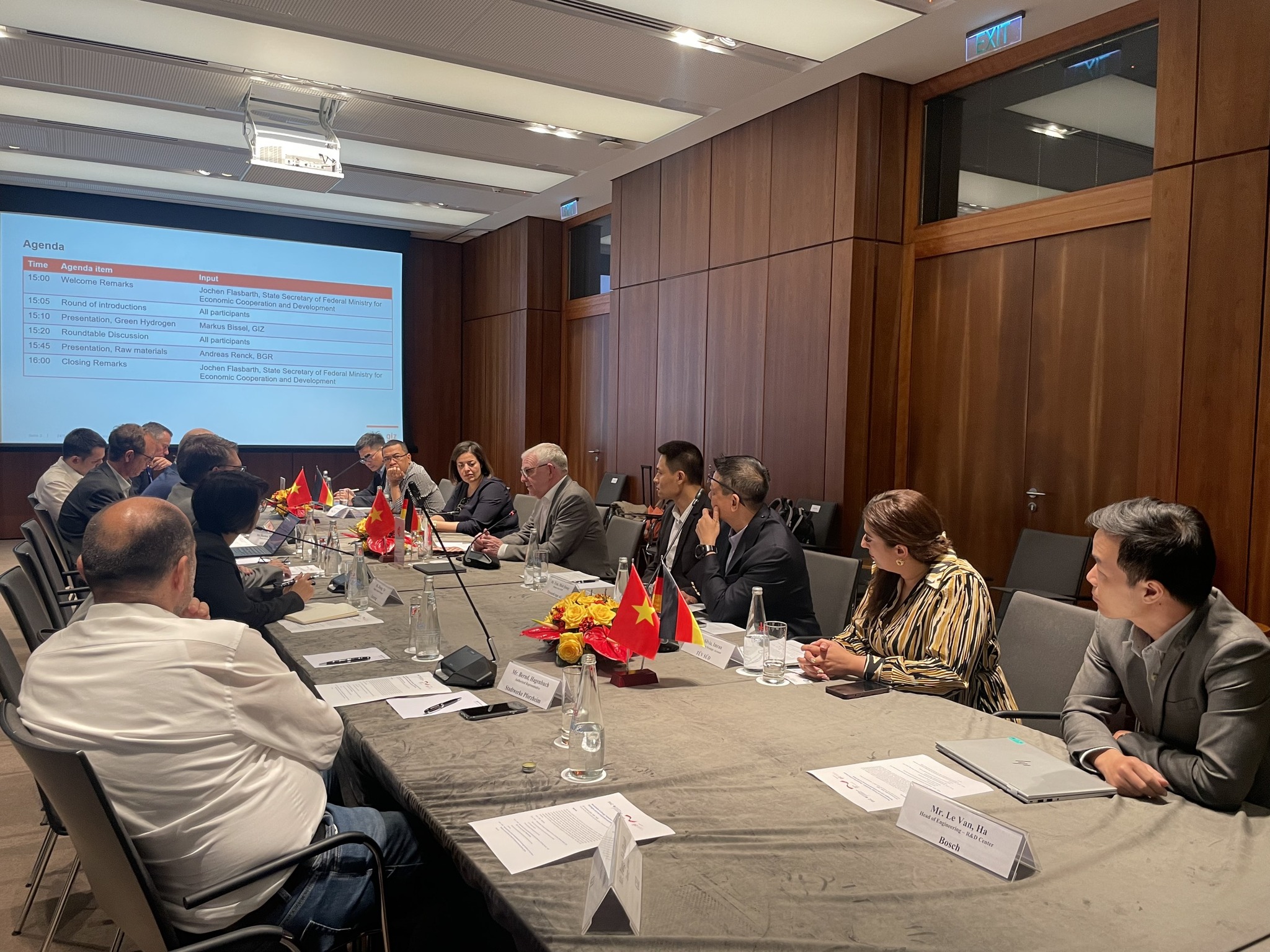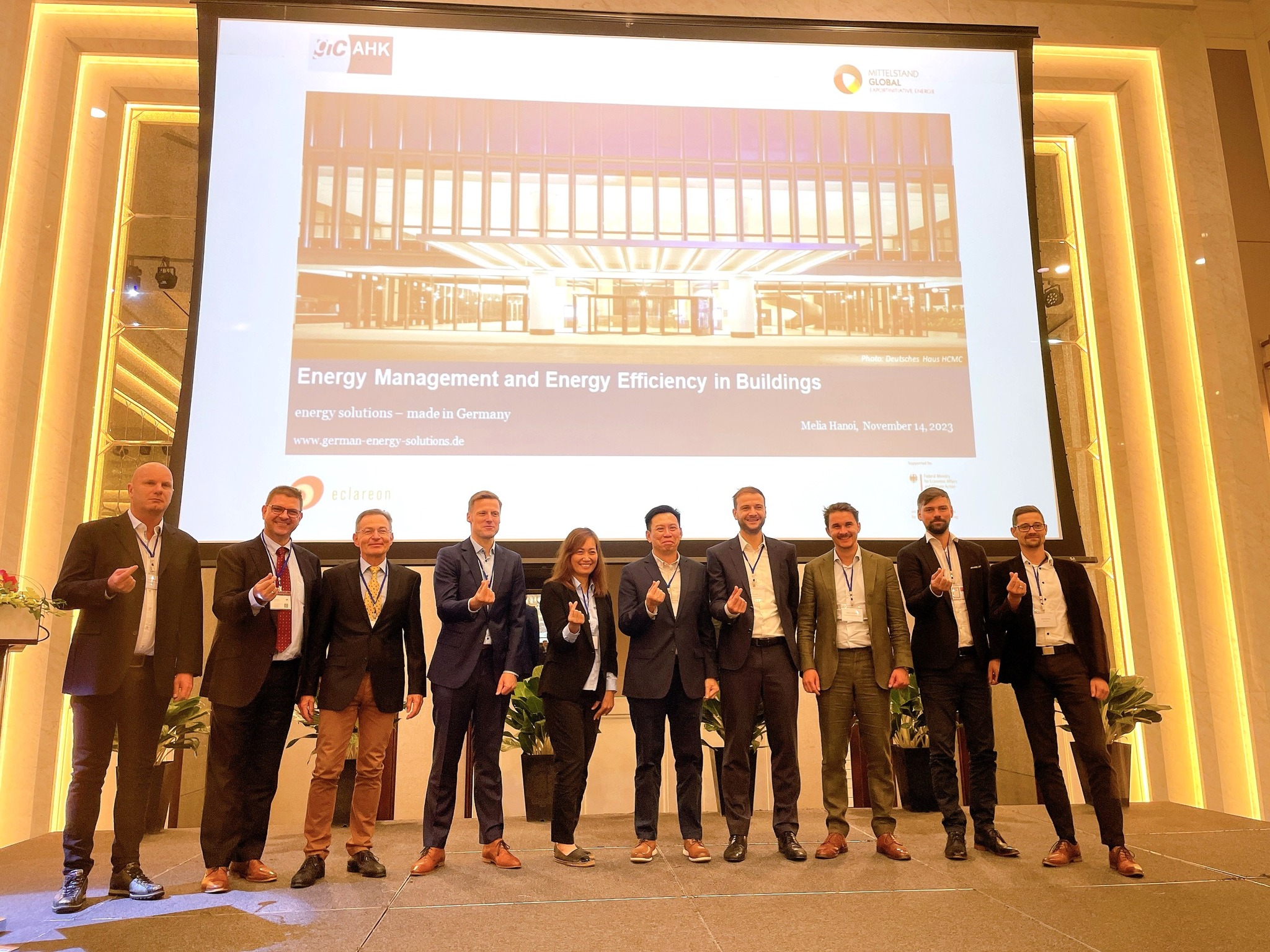On April 12, within the framework of the Vietnam-Germany Energy Dialogue funded by the German Federal Ministry of Economic Affairs and Climate Action (BMWK), the GIZ Energy Support Program (ESP) collaborated with Vietnam Electricity EVN to organize a workshop on Offshore Wind Grid. The workshop shared the best practices on the development, connection, and operation of offshore wind (OSW) projects, especially in the context that EVN has recently submitted to the Prime Minister the investment proposal of the first 800MW Offshore Wind in the northern coast of Viet Nam.
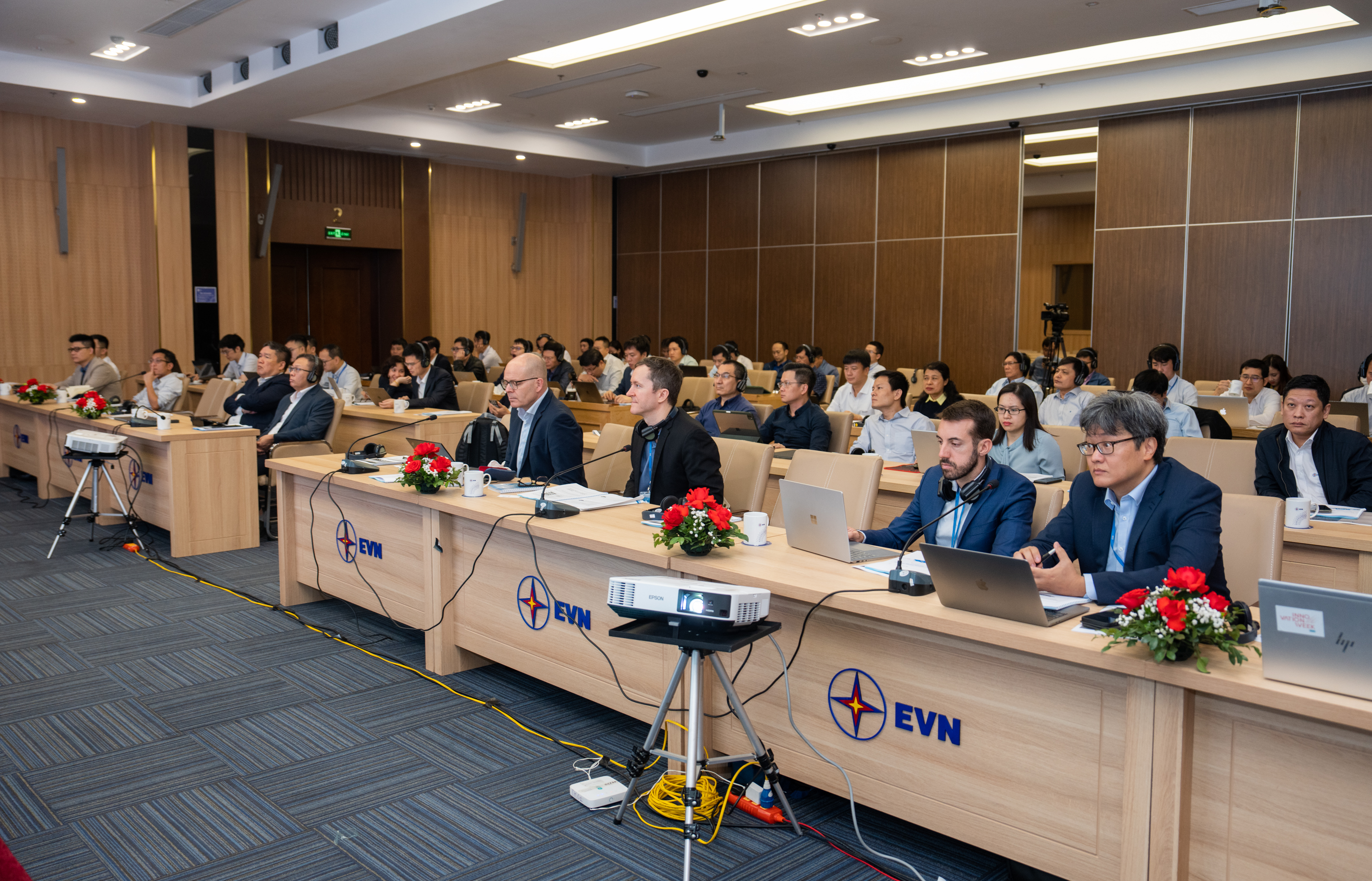
The morning session focused on international experiences and lessons on developing developing the OSW market in European nations, including Germany and United Kingdom. Europe has set the target to raise the integration of OWG to the grid from the current 15 GW to 350 GW by 2050. Up til now, the OSW generation in Europe has reached maturity in terms of technology and cost; however, the transmission system requires technological development and improvement for effective planning.
In addition, the expert from Elia Grid International (EGI) compares the advantages and drawbacks of the two OSW development models, including TSO model, and Developer model when considering the factors of planning, building, operating, maintaining, and owning the offshore grid infrastructure. Based on the international experiences, the choice of development option will depend not only on the scale of single project but also on the overall development plan in the surrounding area: the larger the scale, the larger challenges will be imposed for the efficient integration and system operation. To select a project development plan suitable for the level of current technology development, it is necessary to conduct an overall assessment of the design of the current transmission system infrastructure. In fact, most of the European OSW markets have switched from Developer model to TSO model after undergoing the development phase of single projects and recognized the advantages of TSO model over Developer model.
Based on the research results of Viet Nam OSW development potential, the international experts believe that the OSW potential of Viet Nam is the key to energy stability in the region. With the introduction of the ASEAN Power Grid (APG) Initiative, the ASEAN countries have had a common policy framework for the development of an expected grid effort the region, which facilitates the information exchange and raising awareness of the OSW project benefits.
The limitation, however, is that the ASEAN policy framework is still inadequate. The APG initiative is still founded on bilateral agreements between its member nations; consequently, rather than providing an overarching to construct a regional grid, the content is driven by the bottom-up concerns of the member countries.
In the afternoon session, the delegates listened to the representative of Power Construction Consulting Joint Stock Company 1 (EVNPECC1) about the potential of OSW development in the Gulf of Tonkin, including wind potential, constrain areas against environment and socio-economic aspects, and solutions for national grid connection.
The investment management department of EVN also disclosed that Vietnam has set the target for OSW installed capacity nationwideof 07 GW by 2030 and 87 GW by 2050. The development of OSW is essential to proactively secure EVN’s electricity supply until 2030, particularly for the North region. At the same time, it is also in line with EVN’s development strategy and national vision for 2045.
However, the implementation process is still facing difficulties when the National Power Development Plan for the period of 2021 – 2030 (PDP VIII) and the National Marine Spatial Plan for the period of 2021 – 2030 have not been approved. There are the lacks in regulatory framework regarding no pricing mechanism and policy for OSW projects, no regulations on sequence of and criteria for selecting investors, etc. Besides, there are challenges in infrastructure, data, capabilities and experience, investment costs, etc.
On that basis, EVN proposed that the government should quickly review and accelerate the approval of Power Development Plan (PDP) VIII and National Marine Spatial Plan, issue legal regulations on project investment, construction, and operation, as well as upgrade the infrastructure system to meet the requirements for OSW development.
EVN also expects to strengthen cooperation with GIZ to support ministries and sectors in formulating incentive policies; as well as to facilitate capacity building on OSW for EVN and its consulting companies.
In addition, international experiences in OSW connection, hybrid grid interconnection cable, Offshore Hub – Artificial islands, operation management, and other technical aspects were presented during the session. The OSW Task force of the Viet Nam Energy Partnership Group (VEPG) was also introduced during the workshop.
Sharing at the workshop, Mr. Pham Hong Phuong – Deputy General Director of Vietnam Electricity said: “The research, investment, and construction of OSW projects have contributed to accelerating and shaping the energy transition process, and promote Viet Nam to realize its goals of being carbon neutral by 2050 while using resources economically, efficiently and competitively, and at the same time achieving the goal of gradually phasing out coal power in the following years. With the goal of putting 07 GW OSW into operation by 2030, Viet Nam needs to have an active preparation process with appropriate policies to shorten the implementation time.”
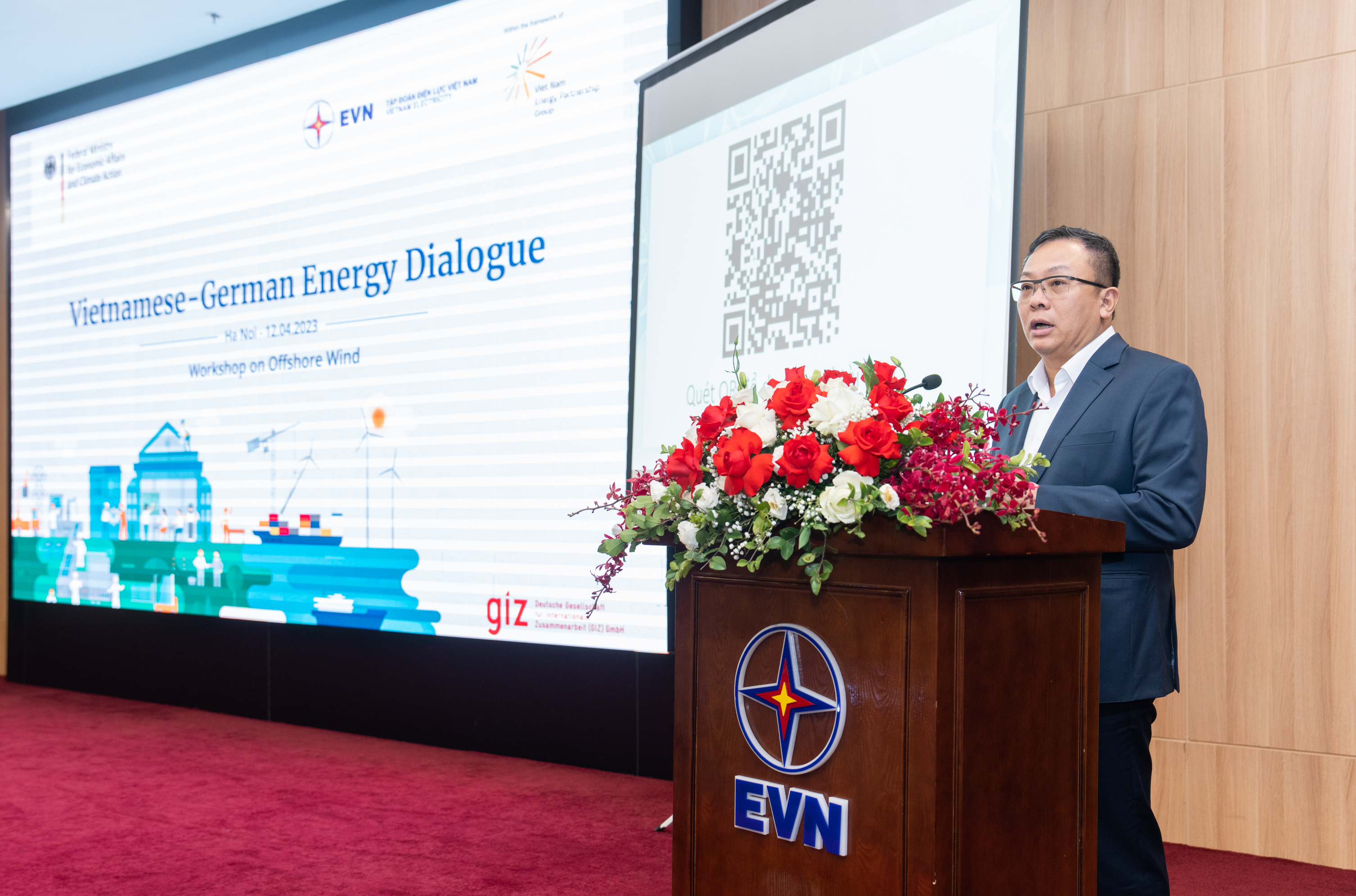
Mr. Markus Bissel, representative of the GIZ Energy Support Programme (ESP) emphasized that the ESP will continue to implement cooperation activities between the two countries as part of the Viet Nam – Germany Energy Dialogue, thereby supporting the Vietnamese government at the national and provincial levels in their efforts to strengthen the political and specific regulatory implementation processes for the energy transition in Viet Nam.?
